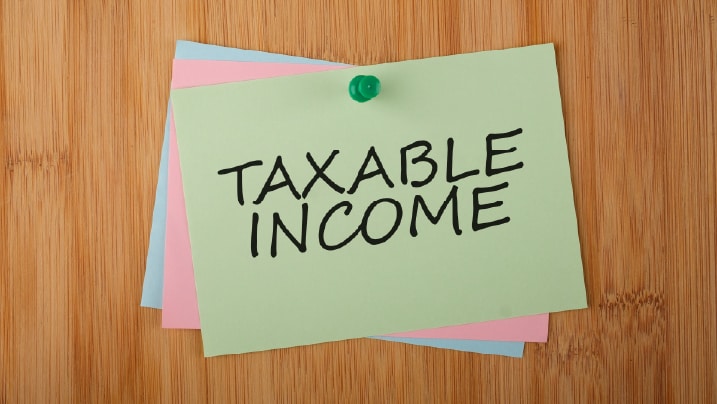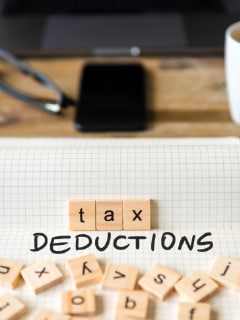CKYC Registry
-
Customer Service Contact us Service request Locate a branch
Find all the help you need
Scan the QR, get our app, and find help on your fingertips

Help CenterSupport topics, Contact us, FAQs and more
-
Login
Are you ready for an upgrade?
Login to the new experience with best features and services
-
Login
Are you ready for an upgrade?
Login to the new experience with best features and services
- Accounts
-
Deposits
IDFC FIRST Bank Deposits
View all Deposits -
Loans
IDFC FIRST Bank Loans
View all Loans - Wealth & Insure
-
Payments
IDFC FIRST Bank Payments
View all Payments -
Cards
IDFC FIRST Bank Cards
View all Cards - Blogs
- Corporate Account
-
Cash Management Services
IDFC FIRST Bank Cash Management Services
View all Cash Management Services - Supply Chain Finance
-
Corporate Lending
IDFC FIRST Bank Lending
View all -
Treasury
IDFC FIRST Bank Treasury
See more details - NBFC Financing
Support topics, Contact us, FAQs and more
- IDFC FIRST Bank Accounts
-
Savings Account
-
Corporate Salary
Account -
Senior Citizens
Savings Account -
First Power
Account -
Current Account
-
NRI Savings
Account -
TASC Institutional
Account -
Savings Account
Interest Calculator
- IDFC FIRST Bank Deposits
-
Fixed Deposit
-
Recurring Deposit
-
NRI Fixed Deposit
-
Safe Deposit Locker
-
FD Calculator
-
RD Calculator
- IDFC FIRST Bank Loans
-
Personal Loan
-
Consumer Durable
Loan -
Home Loan
-
Business Loan
-
Professional Loan
-
Education Loan
-
New Car Loan
-
Pre-owned Car Loan
-
Two Wheeler Loan
-
Pre-owned Two
Wheeler Loan -
Commercial Vehicle
Loan -
Gold Loan
-
Loan Against Property
-
Loan Against Securities
-
Easy Buy EMI card
-
Personal Loan
EMI Calculator -
Education Loan
EMI Calculator -
Home Loan
EMI Calculator
- IDFC FIRST Bank Wealth & Insure
-
FIRST Select
-
FIRST Wealth
-
FIRST Private
-
Mutual Funds
-
Sovereign Gold Bond
-
Demat Account
-
Term Insurance
-
Life Insurance
-
Health Insurance
-
General Insurance
-
Bonds
-
Loan Against
Securities -
Portfolio Management
Service
- IDFC FIRST Bank Payments
-
FASTag
-
Credit Card
Bill Payments -
UPI
-
Funds Transfer
-
Forex Services
-
Pay Loan EMI
- IDFC FIRST Bank Cards
-
Ashva :
Metal Credit Card -
Mayura :
Metal Credit Card -
FIRST Millennia
Credit Card -
FIRST Classic
Credit Card -
FIRST Select
Credit Card -
FIRST Wealth
Credit Card -
FIRST WOW!
Credit Card -
Deals
-
Debit Cards
-
Co-branded Cards
-
Credit Card
EMI Calculator -
FIRST Corporate
Credit Card -
FIRST Purchase
Credit Card -
FIRST Business
Credit Card
- Premium Metal Credit Cards
-
AshvaLifestyle1% Forex₹2,999
-
MayuraLifestyleZero Forex₹5,999
-
FIRST PrivateInvite Only
- Best for travellers
-
MayuraZero ForexMetal₹5,999
-
Ashva1% ForexMetal₹2,999
-
FIRST WOW!Zero ForexTravelLifetime Free
-
FIRST SWYPTravel OffersEMI₹499
-
FIRST Select1.99% ForexLifestyleLifetime Free
-
FIRST Wealth1.5% ForexLifestyleLifetime Free
-
Club VistaraTravelLifestyle₹4,999
-
IndiGo IDFC FIRST Dual Credit CardTravelLifestyle₹4,999
- Max benefits, Free for life
-
FIRST Classic10X RewardsShoppingNever Expiring Rewards
-
FIRST Millennia10X RewardsShoppingNever Expiring Rewards
-
FIRST Select10X RewardsLifestyle1.99% Forex
-
FIRST Wealth10X RewardsLifestyle1.5% Forex
-
FIRST WOW!RewardsTravelZero Forex
-
LIC ClassicRewardsInsuranceShopping
-
LIC SelectRewardsInsuranceShopping
- Reward Multipliers
-
AshvaLifestyleMetal₹2,999
-
MayuraLifestyleZero Forex₹5,999
-
FIRST ClassicNever Expiring RewardsShoppingLifetime Free
-
FIRST MillenniaNever Expiring RewardsShoppingLifetime Free
-
FIRST SelectNever Expiring RewardsLifestyleLifetime Free
-
FIRST WealthNever Expiring RewardsLifestyleLifetime Free
- Rewards & Credit on UPI
-
FIRST Power+FuelUPI₹499
-
FIRST PowerFuelUPI₹199
-
FIRST EA₹NVirtual1% Cashback₹499
-
FIRST DigitalVirtualUPI₹199
-
IndiGo IDFC FIRST Dual Credit CardUPITravelDual cards
- Fuel and Savings
-
FIRST PowerRewardsUPI₹199
-
FIRST Power+RewardsUPI₹499
-
LIC ClassicRewardsInsuranceShopping
-
LIC SelectRewardsInsuranceShopping
- Express and Flaunt
-
AshvaMetal1% Forex₹2,999
-
MayuraMetalZero Forex₹5,999
-
FIRST SWYPEMIOfferMAX₹499
-
FIRST MillenniaRewardsShoppingLifetime Free
- FD Backed rewarding Credit Cards for all
-
FIRST EA₹NVirtualCashback₹499
-
FIRST WOW!Zero ForexTravelLifetime Free
-
CreditPro Balance TransferTransfer & SaveReduce InterestPay Smartly
- IDFC FIRST Bank NRI Forex Solutions
-
Send money to India-Wire transfer
-
Send money to India-Digitally
-
Send money abroad
-
Max Returns FD (INR)
- IDFC FIRST Bank MSME Accounts
-
Platinum Current
Account -
Gold
Current Account -
Silver Plus
Current Account -
Merchant Multiplier
Account -
Agri Multiplier
Account -
TASC Institutional
Account -
Dynamic Current
Account -
World business
Account -
First Startup
Current Account
- IDFC FIRST Bank Business Loans
-
Business Loan
-
Professional Loan
-
Loan Against Property
-
Business Loan for Women
-
Working Capital Loan
-
Construction Equipment Loan
-
Machinery Loan
-
Healthcare Equipment Loan
- IDFC FIRST Bank Business Solutions
-
Payment Solutions
-
Tax Payments
-
Doorstep Banking
-
Point of Sale (POS)
-
Escrow Accounts
-
NACH
-
Payment Gateway
-
UPI
-
Virtual Accounts
-
As per amendment in the Income Tax Rules, PAN or Aadhaar are to be mandatorily quoted for cash deposit or withdrawal aggregating to Rupees twenty lakhs or more in a FY. Please update your PAN or Aadhaar. Kindly reach out to the Bank’s contact center on 1800 10 888 or visit the nearest IDFC FIRST Bank branch for further queries.
-
-
Most Searched
Sorry!
We couldn’t find ‘’ in our website
Here is what you can do :
- Try checking the spelling and search
- Search from below suggestions instead
- Widen your search & try a more generic keyword
Suggested
Get a Credit Card
Enjoy Zero Charges on All Commonly Used Savings Account Services
Open Account Now
Savings Account
Different types of income and the tax you need to pay
Summary: The income tax return (ITR) you file depends on the type of income you earn. Here's a detailed guide on the different types of income specified under the Income Tax Act and the tax implications and exemptions on each.
The Income Tax Act specifies that an individual's earnings fall under different income heads. Your income tax liability is calculated on the basis of the type of income; the types of income tax return (ITR) you file also depend on the type of earnings.
To file your ITR correctly, you must know what type of income you are earning, how tax is calculated on such a source of income, and which ITR to file at the end of the year.
Let's explore this in detail.
Types of income
Section 14 of the Income Tax Act defines five broad types of income under which earnings can be categorised. The income you earn during a financial year is categorised under one of the following five heads of income.
1. Income from salary
Salary is any monetary compensation received as remuneration for services offered. Such compensation must be based on an agreement between the payer and the payee, with an employer-employee relationship.
The salary amount can have more than one component, including, but not limited to, basic salary, allowances, leave encashment, pension, gratuity, etc. Some of the allowances paid as a part of the salary may be exempt. These include house rent allowance (HRA), medical allowance, and leave travel allowance.
Your salary for March is included even if it is paid in April, i.e., the next financial year. If you receive April's salary as an advance in March, it will be included even though it is from the upcoming financial year.
Tax implication
Your employer uses your salary information and the investment deductions you may have declared to estimate your tax liability. They are mandatorily required to deduct TDS from the salary disbursed. The salary income minus exemptions are added in the ITR against income from salary.
Also read: https://www.idfcfirstbank.com/finfirst-blogs/finance/why-social-media-influencer-need-to-pay-tax
2. Income from house property
If you have earned any rental income from a house or a commercial property during the year, it will fall under this type of income tax head. If you have more than one house property, only one is considered self-occupied, while all the others are treated as let-out properties.
The annual estimated "lettable" value or the rent received/receivable is included as income from the let-out property. House property is taxable when,
• The house property consists of a house, building or appurtenant land
• The taxpayer is the owner of the property
• The property is not used for carrying out the taxpayer's business or professional practice
Income from house property is eligible for the following deductions:
• Standard deduction of 30% of the net annual value
• Interest paid against a home loan
• Municipal taxes
• Unrealised rent
Tax implication
After the above deductions, the rental income is added to the ITR under the head 'Income from House Property'. If the rental income in a financial year is more than Rs 2.4 lakh, 10% of the rent is deducted as TDS (5% for individuals and HUFs, if rent is more than Rs 50,000 per month).
3. Income from profits and gains of business or profession
Any profit you make from a business or profession during the financial year is categorised as Income from profits and gains of a business or profession. Sub-sections of sections 28, 41 and 43 define the incomes chargeable to tax under this head. If the taxpayer receives any bonus, salary or profit in the capacity of a partner in a business, it will fall under this source of income head.
Tax implication
Before calculating the tax on your business or professional Income, you can deduct the relevant business expenses while following the provisions of sections 30 to 37 of the Income Tax Act. The profit earned from a business or profession is included under this type of income head while calculating the taxpayer’s net taxable Income.
4. Income from capital gains
Income from the sale of any movable or immovable capital asset falls under capital gains. It could be classified as short-term capital gain (STCG) and long-term capital gain (LTCG). Gains from the sale of an asset held for 36 months or less are considered STCG. The period is 24 months or less for the sale of immovable properties and 12 months or less for securities.
Gains from the sale of an asset held for more than 36 months fall under LTCG. For the sale of immovable properties, the duration is more than 24 months and more than 12 months in the case of securities.
Tax implication
• LTCG on securities is taxable at 10%. No tax is applicable if the capital gain is less than Rs 1 lakh
• LTCG on any other asset is 20%
• STCG is taxed at 15% if securities transaction tax (STT) is applicable
• STCG is added to the taxable Income of the assessee and taxed as per the income tax slab if STT is not applicable
5. Income from other sources
This includes any other source of Income apart from the four income heads specified above. Interest income, the commission received, lottery winnings, dividends, gifts, etc., fall under this type of income head.
Tax implication
The Income from other sources is added to the net taxable Income of the assessee and taxed as per the slab. TDS deduction varies for the different types of Income from other sources. For instance, TDS on lottery winnings is 30%, while interest income is 10%.
Also read: https://www.idfcfirstbank.com/finfirst-blogs/finance/is-tax-refund-amount-taxable
Conclusion
Once you ascertain your type of Income, calculating your tax liability becomes easier. There are various ways in which you can maximise your tax savings.
Opening an IDFC FIRST Bank savings account makes investing in tax-saver fixed deposits, tax-deductible ELSS mutual funds, buying life insurance and much easier. Open your IDFC FIRST Bank Savings Account today in just a few clicks and enjoy many benefits, including high-interest rates and monthly interest credits.
Disclaimer
The contents of this article/infographic/picture/video are meant solely for information purposes. The contents are generic in nature and for informational purposes only. It is not a substitute for specific advice in your own circumstances. The information is subject to updation, completion, revision, verification and amendment and the same may change materially. The information is not intended for distribution or use by any person in any jurisdiction where such distribution or use would be contrary to law or regulation or would subject IDFC FIRST Bank or its affiliates to any licensing or registration requirements. IDFC FIRST Bank shall not be responsible for any direct/indirect loss or liability incurred by the reader for taking any financial decisions based on the contents and information mentioned. Please consult your financial advisor before making any financial decision.
The features, benefits and offers mentioned in the article are applicable as on the day of publication of this blog and is subject to change without notice. The contents herein are also subject to other product specific terms and conditions and any third party terms and conditions, as applicable. Please refer our website www.idfcfirstbank.com for latest updates.























